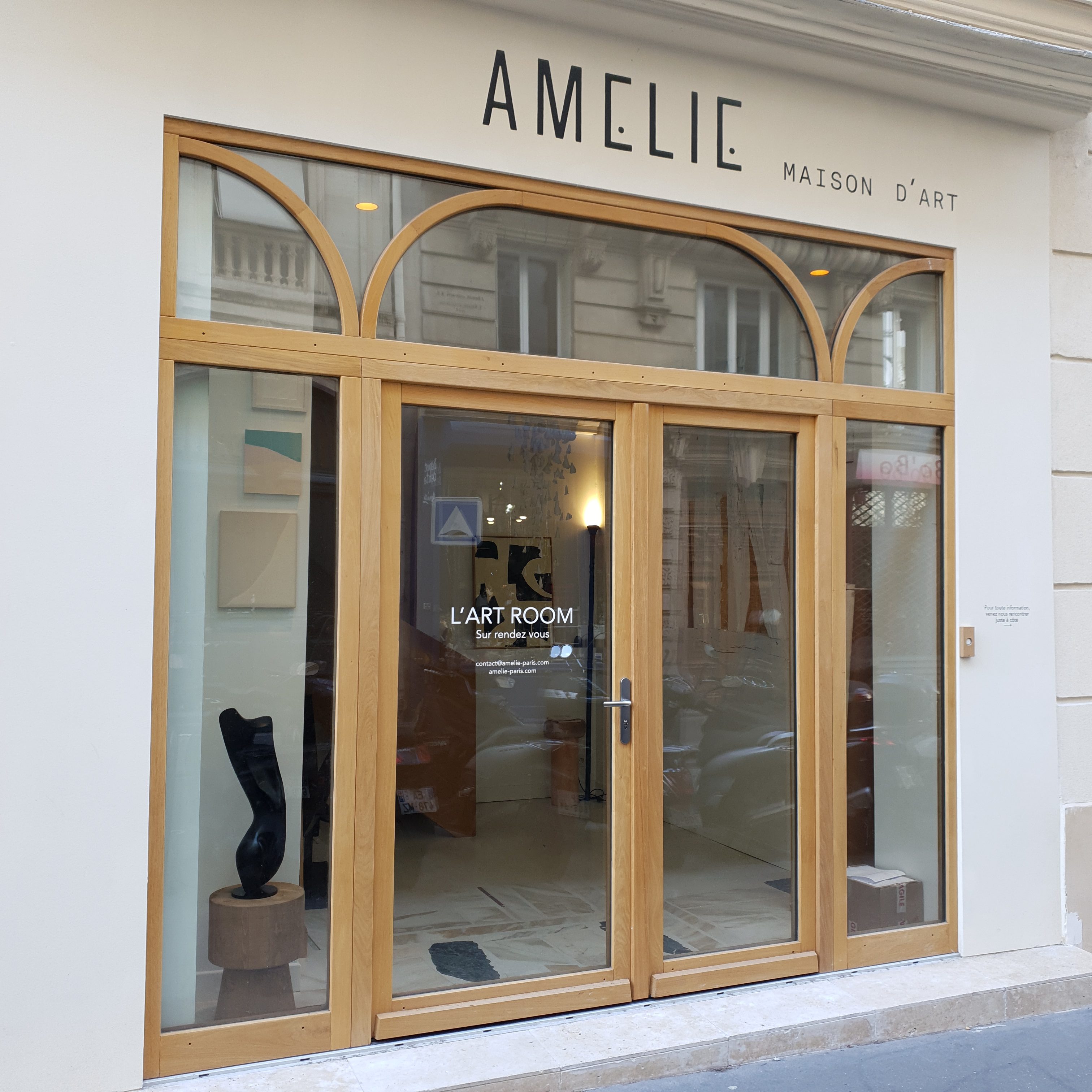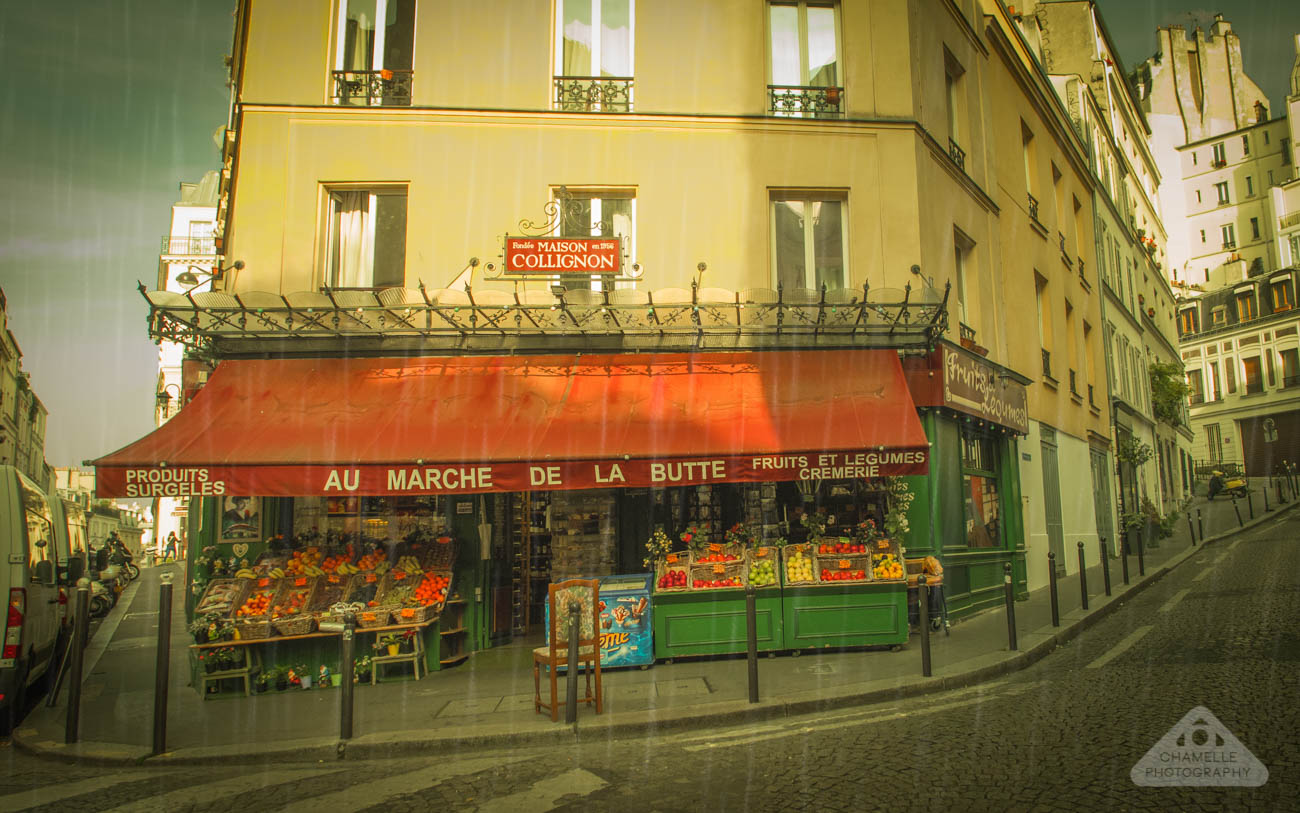Imagine a place in Paris that feels like a warm embrace, a spot where the city's unique charm truly comes alive. This isn't just about a building; it's about a feeling, a sense of belonging that many places in the French capital try to capture. When we think of a "maison" in Paris, our thoughts often drift to cozy corners, delightful treats, and moments of quiet pleasure, or perhaps a place where new styles and ideas are shared. It's almost as if the very name conjures up images of comfort and simple elegance, a little bit of magic in a bustling city.
The idea of "maison d'amelie paris" brings to mind a spot that embodies this very spirit. It suggests a place that isn't just a business, but somewhere with a personal touch, a welcoming atmosphere that invites you to linger. You know, it's like stepping into a friend's charming home, where every detail seems to tell a story. This kind of establishment, whether it's a cozy bakery, a fashion outlet, or a quiet little shop, tends to be about more than just what it sells; it's about the experience it offers, the way it makes you feel.
For many, the appeal of a "maison" in Paris lies in its ability to offer a slice of authentic local life, a break from the ordinary. It's where the everyday becomes a little bit special, a place to savor simple pleasures. So, when we consider "maison d'amelie paris," we are really thinking about that quintessential Parisian experience, a place that feels genuinely connected to the city's heart, somewhere you might just want to return to again and again.
Table of Contents
- What is the Charm of a Parisian "Maison"?
- Exploring the Idea of "maison d'amelie paris"
- How Does a "Maison" Capture a City's Spirit?
- The Parisian Feel in "maison d'amelie paris"
- Why Do We Love These Special Places?
- What Makes "maison d'amelie paris" Feel Welcoming?
- What Role Do Such Spots Play in Our Lives?
- The Enduring Appeal of "maison d'amelie paris"
What is the Charm of a Parisian "Maison"?
The word "maison" in French simply means "house" or "home," but in a business context, it often refers to an establishment, a fashion house, or a place with a distinct identity. It carries a sense of heritage, a feeling of quality that has been built over time. Think about how a home feels; it's a spot of comfort, a place where people gather, where stories are made. This very essence is what many Parisian establishments try to put across when they call themselves a "maison." They want to create a feeling of warmth and invitation, a sense of belonging for anyone who steps inside.
A "maison" in Paris, really, can be anything from a high-end fashion house to a small, local bakery. What ties them together is this idea of offering something special, something with a personal touch. It's not just about selling things; it's about sharing a piece of French culture, a way of life. They tend to focus on the experience, the atmosphere, and the quality of what they provide. So, when you hear "maison," you might actually picture a place that values tradition and craftsmanship, a spot that feels quite authentic.
These places often become beloved parts of their neighborhoods, drawing people in with their unique character. They are, in a way, like the heart of a community, offering a place for people to connect, to enjoy a quiet moment, or to find something truly unique. The charm comes from this blend of professionalism and personal warmth, a balance that makes them feel both special and accessible. It's pretty much a reflection of Parisian life itself, where beauty and everyday living often mix together quite wonderfully.
Exploring the Idea of "maison d'amelie paris"
When we hear "maison d'amelie paris," the name itself sparks a certain kind of curiosity. It suggests a place that belongs to someone named Amelie, giving it an immediate sense of individuality and a personal touch. This isn't just a generic store; it hints at a spot with a unique character, perhaps reflecting the tastes and personality of its namesake. It's like a secret little find, a place that feels more intimate than a big chain or a standard shop. You know, it gives you a sense of wanting to discover what makes it special.
The very concept of "maison d'amelie paris" brings to mind a space that could be a cozy haven, a spot where people feel at ease. Perhaps it's a place where they sell charming shoes, bags, clothes, wallets, or even backpacks, much like how some "Maison" businesses spread diverse global fashion culture and offer valuable fashion platforms. Or, it could be a place for delicious treats, like authentic French pastries, croissants, quiches, or crepes, much like "Maison Parisienne" or "Maison Marcel" do, making things with fresh ingredients. The name suggests a focus on quality and a welcoming feel, whatever its specific offerings might be.
It's fair to say that a place called "maison d'amelie paris" would aim to provide more than just products or services. It would likely strive to offer an experience, a moment of joy or comfort that stays with you. It’s about creating a memory, a little piece of Paris that feels truly personal. The name itself, in some respects, promises a spot that is cared for, a place where details matter, and where visitors are treated like welcomed guests, which is pretty much the essence of good hospitality.
How Does a "Maison" Capture a City's Spirit?
A true "maison" in a city like Paris doesn't just exist within its streets; it actually breathes the city's air, reflecting its unique personality. Think about how a place can absorb the energy around it. These establishments often draw inspiration from the architecture, the history, and the everyday rhythms of Parisian life. They might use local materials, display art from local artists, or simply embody the elegance and relaxed sophistication that Paris is known for. It's like they're telling a story about the city through their very existence, which is quite interesting.
For instance, a "maison" that offers authentic French pastries, like "Maison Parisienne" or "Maison Marcel," directly connects to a core part of French culture – the love of good food, made with care. They might source ingredients from local farms, ensuring freshness and supporting the community. This dedication to quality and local flavor is a big part of what makes a place feel truly Parisian. It's about respecting tradition while also offering something delightful for today, a balance that Paris really masters.
Moreover, the way a "maison" is set up, its atmosphere, can also capture the city's spirit. Is it a cozy spot with soft lighting, encouraging long conversations over coffee? Or is it a bright, airy space that feels modern and stylish? Each choice helps to reflect a different facet of Paris. Whether it's the quiet charm of a hidden courtyard or the lively energy of a street-side cafe, these places become little reflections of the city's diverse character. They really do manage to embody a certain essence, don't they?
The Parisian Feel in "maison d'amelie paris"
When we consider the "Parisian feel" within "maison d'amelie paris," we are talking about a certain kind of atmosphere that is hard to put into words, yet instantly recognizable. It's that blend of timeless elegance and everyday ease that makes Paris so special. A place like this might feature simple, classic designs, perhaps with a touch of antique charm, making it feel both sophisticated and inviting. You know, it's about creating a space where beauty is found in the details, but it doesn't feel stuffy or unapproachable.
The "Parisian feel" also comes from the sensory experiences offered. Imagine the scent of freshly baked bread and coffee, or the soft rustle of beautiful fabrics. These elements, drawn from the daily life of the city, contribute to a sense of authenticity. If "maison d'amelie paris" were a place for fashion, it might showcase items that are both stylish and practical, reflecting the way Parisians approach dressing – with an eye for quality and a sense of understated chic. It’s not about being flashy; it’s about having a refined taste, in a way.
Furthermore, the way people interact within "maison d'amelie paris" would also contribute to its Parisian character. It would likely be a place where conversations flow easily, where people take their time to enjoy a moment, rather than rushing through. It’s about savoring life’s simple pleasures, whether that’s a perfect croissant or a beautifully made handbag. This relaxed yet refined approach to daily life is, actually, a hallmark of the Parisian spirit, and a place like this would probably capture that quite well.
Why Do We Love These Special Places?
People often feel a deep affection for establishments that offer more than just goods or services; they offer an experience, a memory, a feeling of connection. We love these special places because they break away from the ordinary, giving us a moment of genuine pleasure or surprise. It's like finding a hidden gem, a spot that feels unique and personal in a world that sometimes seems to be getting more uniform. These places have a way of making us feel seen and valued, which is pretty important, isn't it?
These establishments often have a story, whether it's about their beginnings, the people who run them, or the unique items they create. This narrative adds a layer of depth, making them more than just a transaction point. When you know the care that goes into making a pastry, or the thought behind selecting a piece of clothing, it makes the experience much richer. It's about the human touch, the dedication to a craft, which really resonates with people. We tend to appreciate authenticity, you know.
Moreover, these beloved spots often become places where we create our own memories. Maybe it's where you had that perfect cup of coffee on a rainy afternoon, or where you found that special gift for a loved one. They become woven into the fabric of our lives, acting as markers for joyful moments. This personal connection, this sense of shared experience, is a powerful reason why we return to them again and again. They feel like a small piece of comfort, in a way, that we can always count on.
What Makes "maison d'amelie paris" Feel Welcoming?
The feeling of welcome at a place like "maison d'amelie paris" would likely come from a combination of thoughtful details and a genuinely friendly approach. Imagine walking in and being greeted with a warm smile, perhaps the scent of something delicious baking, or the sight of beautifully arranged items. These small gestures can make a big difference, making you feel immediately at ease. It's about creating an atmosphere where visitors feel like guests, not just customers, which is a really nice touch.
A truly welcoming "maison d'amelie paris" would probably pay attention to comfort. This might mean comfortable seating if it's a cafe, or well-lit spaces that make browsing a pleasure if it's a shop. The layout would likely be intuitive, making it easy to move around and discover things without feeling rushed or lost. It's about making the physical space itself feel inviting, a place where you want to spend time, perhaps just a little longer than you planned.
Beyond the physical space, the personal interaction is key. People who work there would likely be knowledgeable about their offerings and happy to share information, but without being pushy. They would aim to be helpful and attentive, creating a relaxed environment where visitors feel respected and cared for. This human connection, this sense of genuine hospitality, is what truly makes a place feel like a second home, and that, is what makes "maison d'amelie paris" so appealing in concept.
What Role Do Such Spots Play in Our Lives?
Places like these, these charming "maisons" in a city, play a rather important role in our daily lives, even if we don't always think about it. They offer us a break, a little escape from the rush of things. In a busy city, finding a quiet corner where you can relax, enjoy a treat, or simply browse without pressure, can be incredibly refreshing. They act as small oases, giving us a chance to slow down and appreciate the moment, which is really quite valuable.
These spots also help to define the character of a neighborhood. They add personality and local flavor, making an area feel unique and lived-in. Imagine a street without its favorite bakery or its quirky little shop; it would feel much less vibrant. They become meeting points, places where friends catch up, or where people simply observe the world going by. They contribute to the fabric of urban life, making it richer and more interesting, honestly.
Moreover, these "maisons" often serve as sources of inspiration. They might introduce us to new tastes, new styles, or new ways of thinking about things. They can spark creativity or simply remind us of the beauty that exists in the world, in craftsmanship, and in simple pleasures. They are, in a way, cultural ambassadors, sharing a piece of their heritage and passion with everyone who walks through their doors. They really do play a part in shaping our experiences, don't they?
The Enduring Appeal of "maison d'amelie paris"
The enduring appeal of a place like "maison d'amelie paris" lies in its promise of something authentic and comforting in a world that often feels fast-paced and impersonal. It represents the desire for genuine connection, for quality over quantity, and for experiences that feel truly special. The very idea of it suggests a timeless charm, a place that would feel just as relevant and inviting today as it would have decades ago. It's about finding beauty in simplicity, and that never really goes out of style.
This kind of establishment often builds a loyal following because it consistently delivers on its promise of warmth and quality. People return not just for what they buy, but for how they feel when they are there. It becomes a trusted spot, a reliable source of joy or comfort. This sense of trust and familiarity is a powerful draw, creating a bond between the place and its visitors. It's like having a favorite book you can always return to, you know?
Ultimately, the appeal of "maison d'amelie paris" comes from its ability to embody the very best of what a Parisian "maison" can be: a welcoming home, a source of delightful things, and a place where the simple moments of life are celebrated. It speaks to a universal longing for beauty, connection, and a touch of magic in our everyday. This concept, in some respects, captures the heart of why we are drawn to places that feel personal and cared for, especially in a city as captivating as Paris.
- Charli Damelio Onlyfans Leaks
- Marcos Soto
- Pizza Beer Bagel Festival
- All Casting Promo Code
- Jennifer Marino Walters


